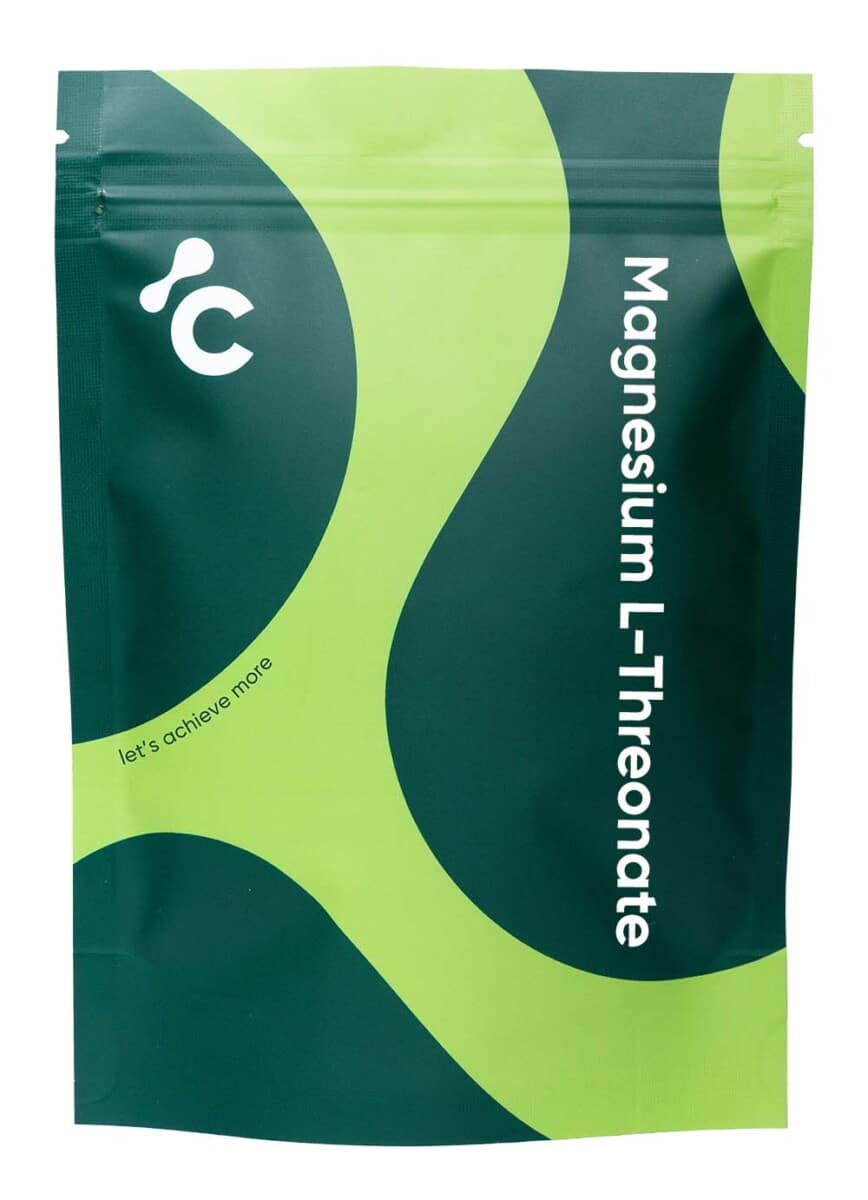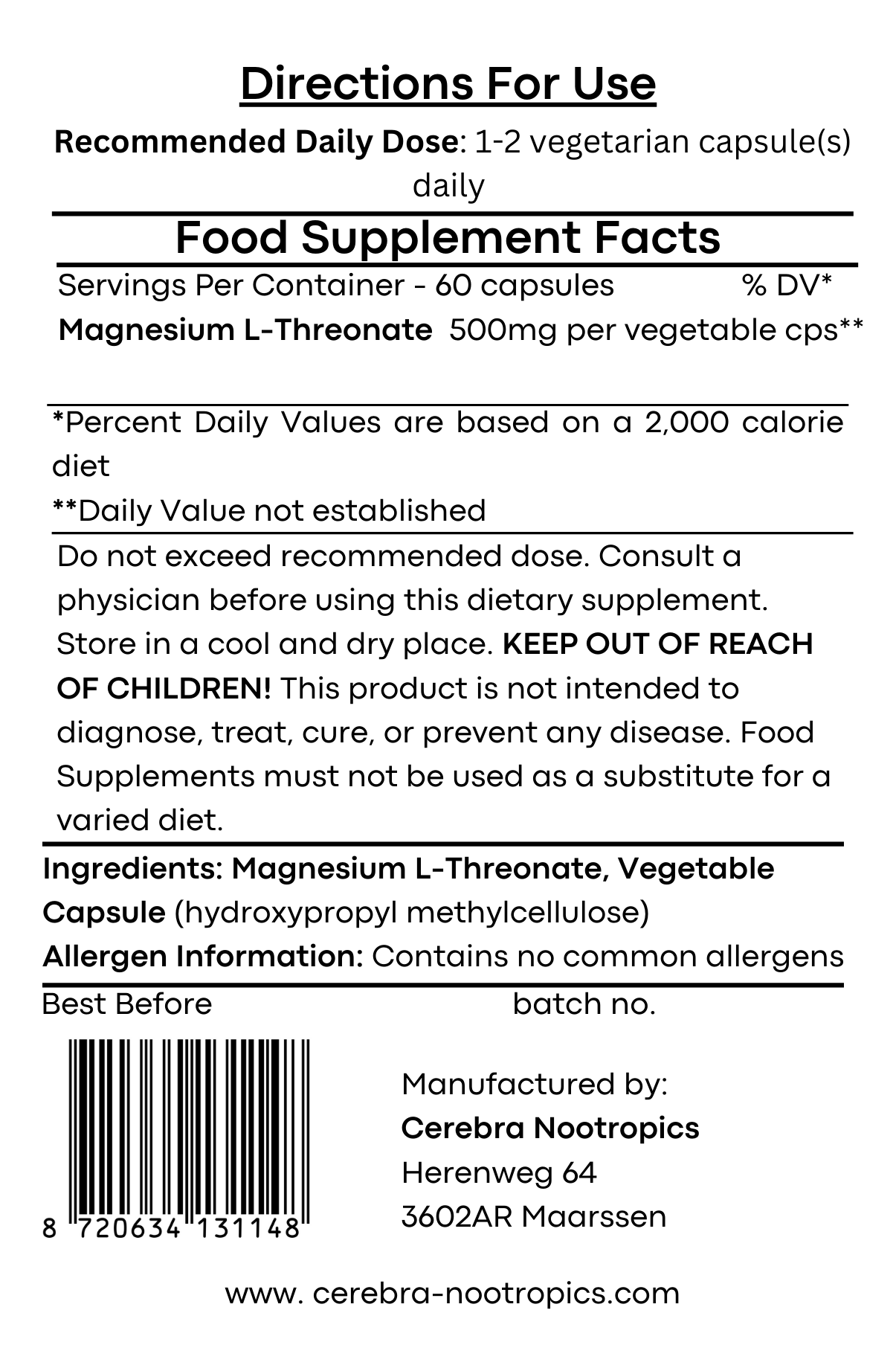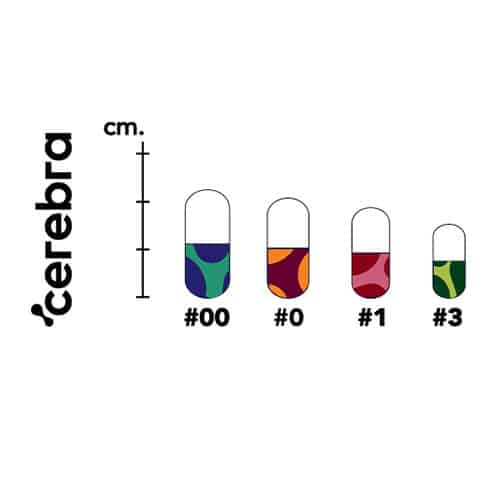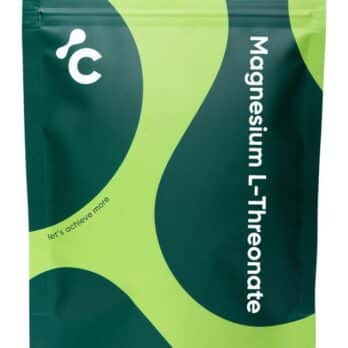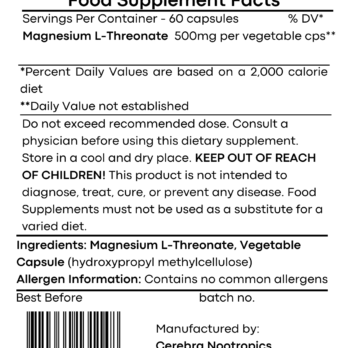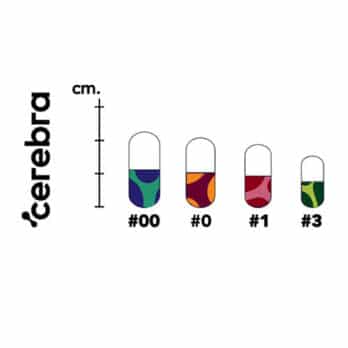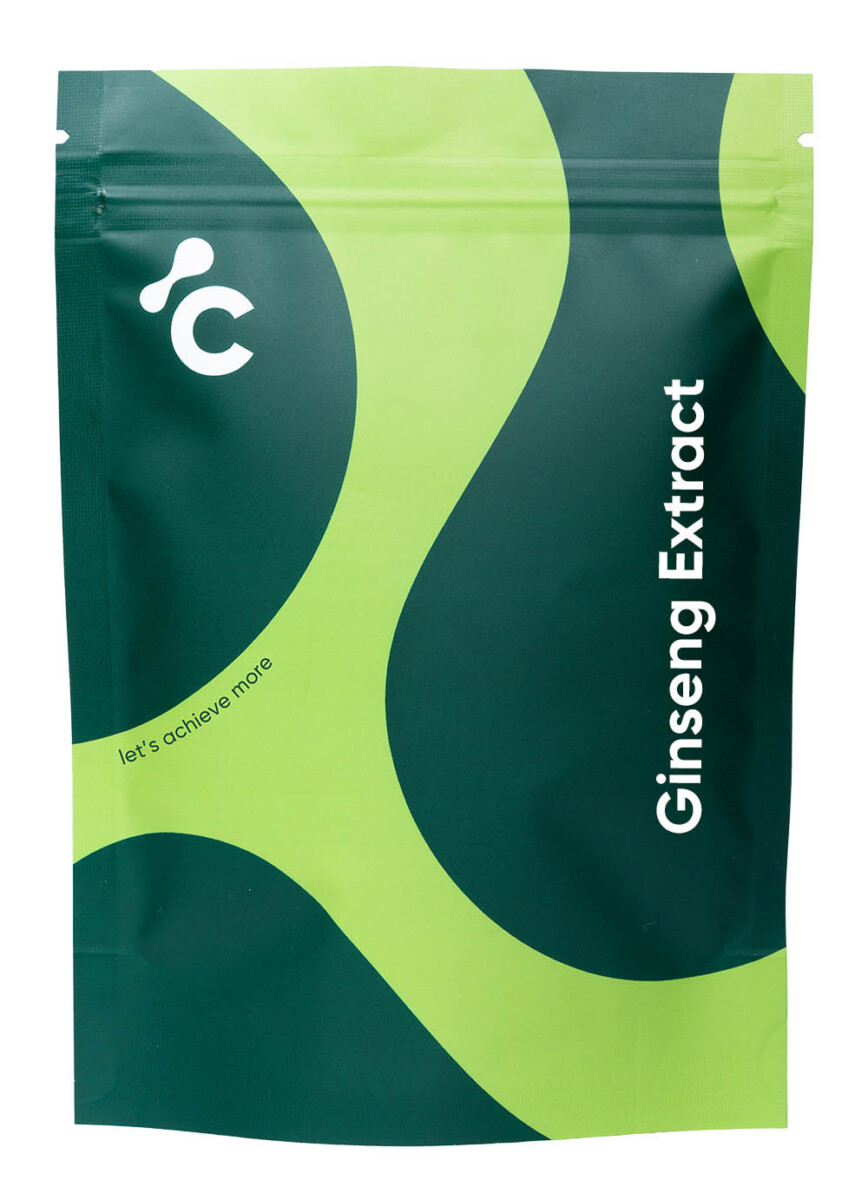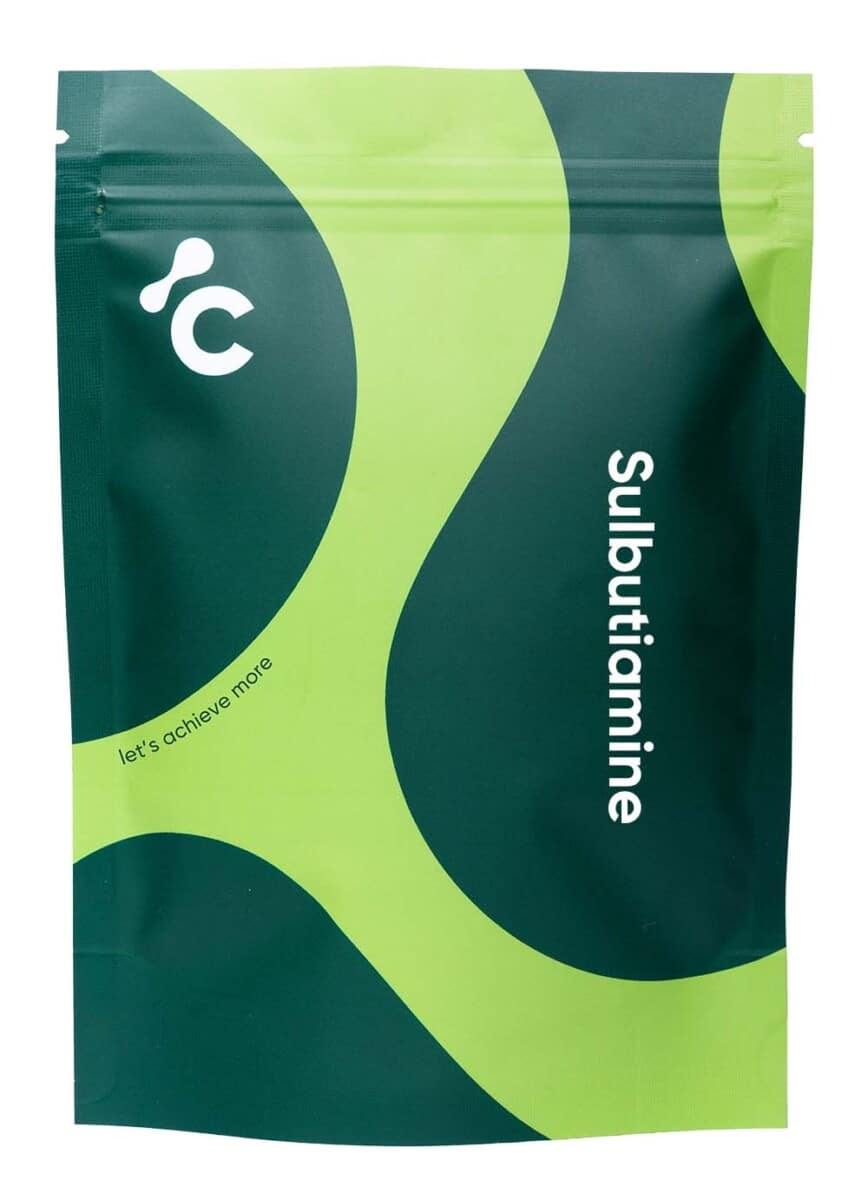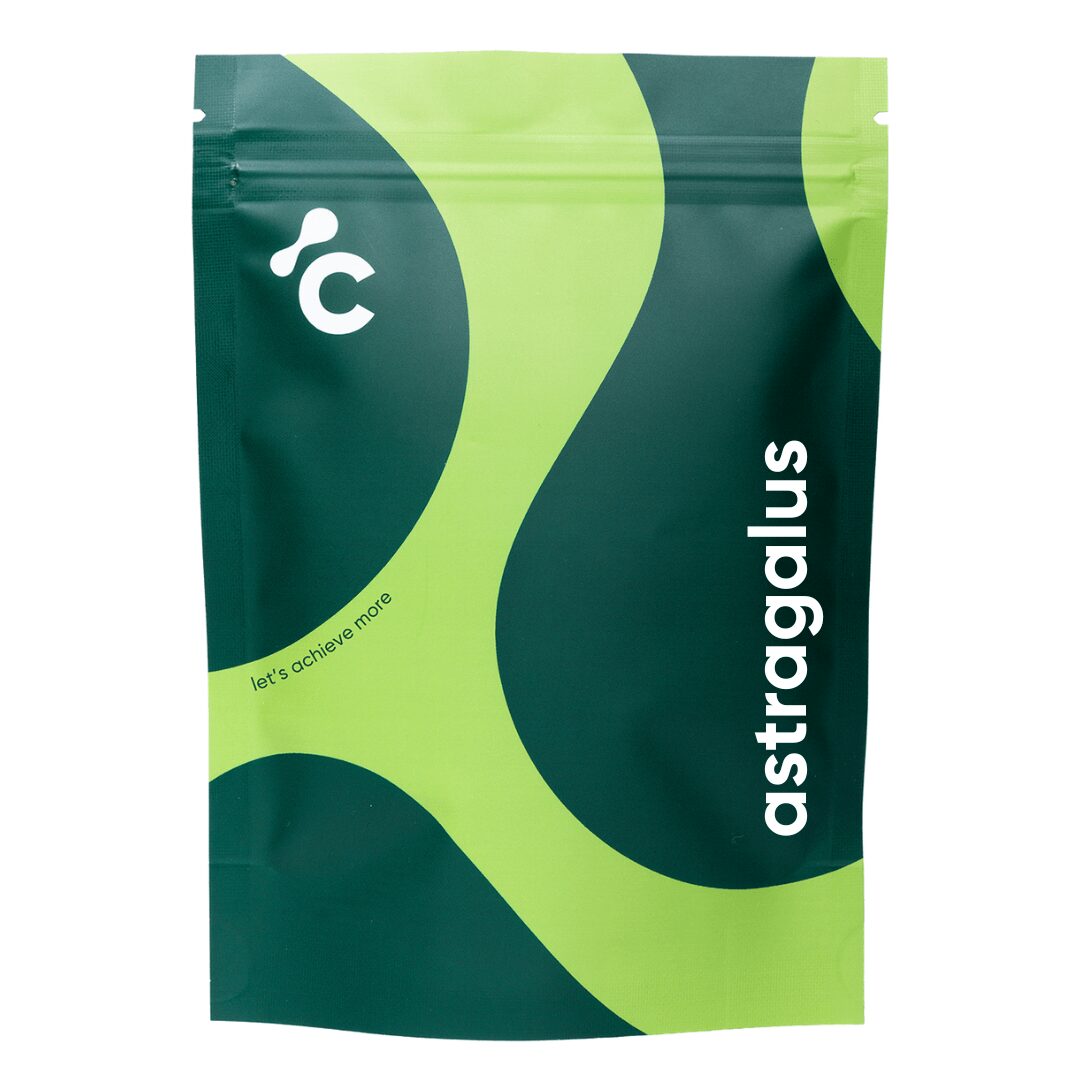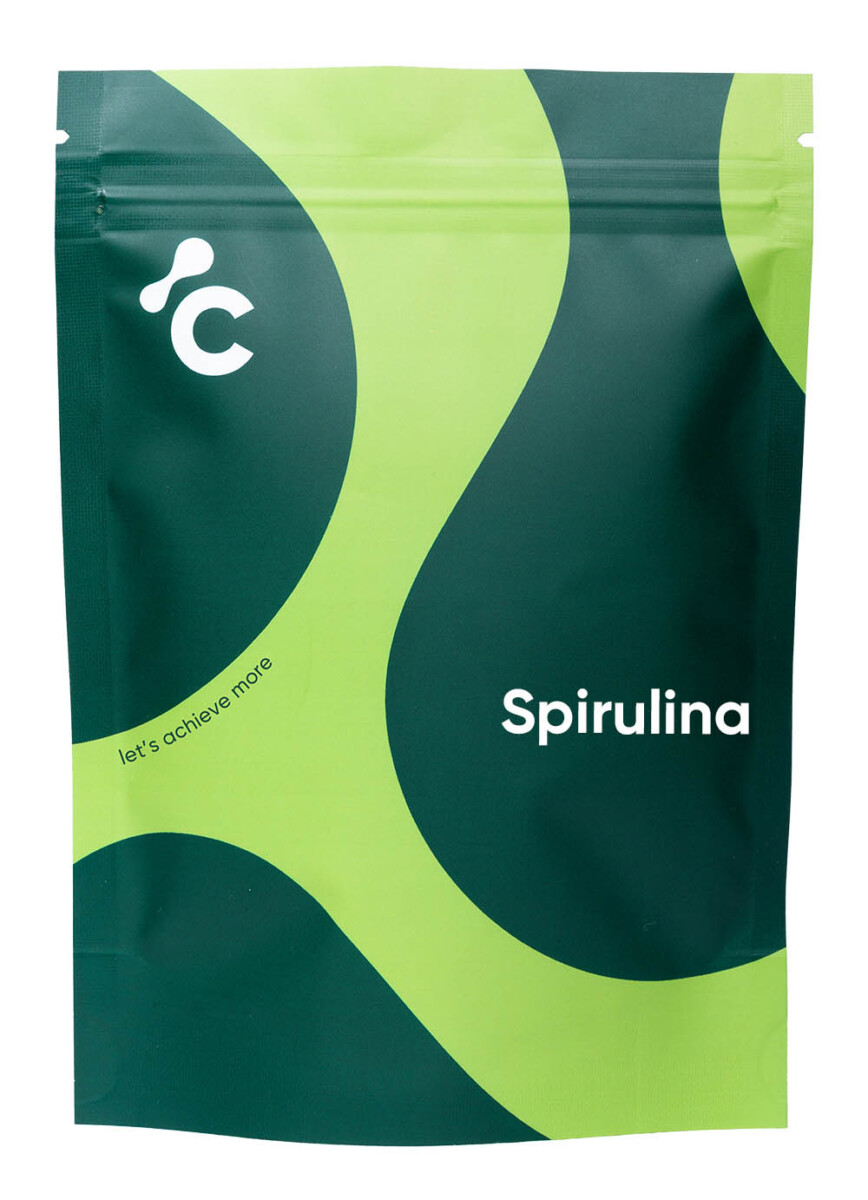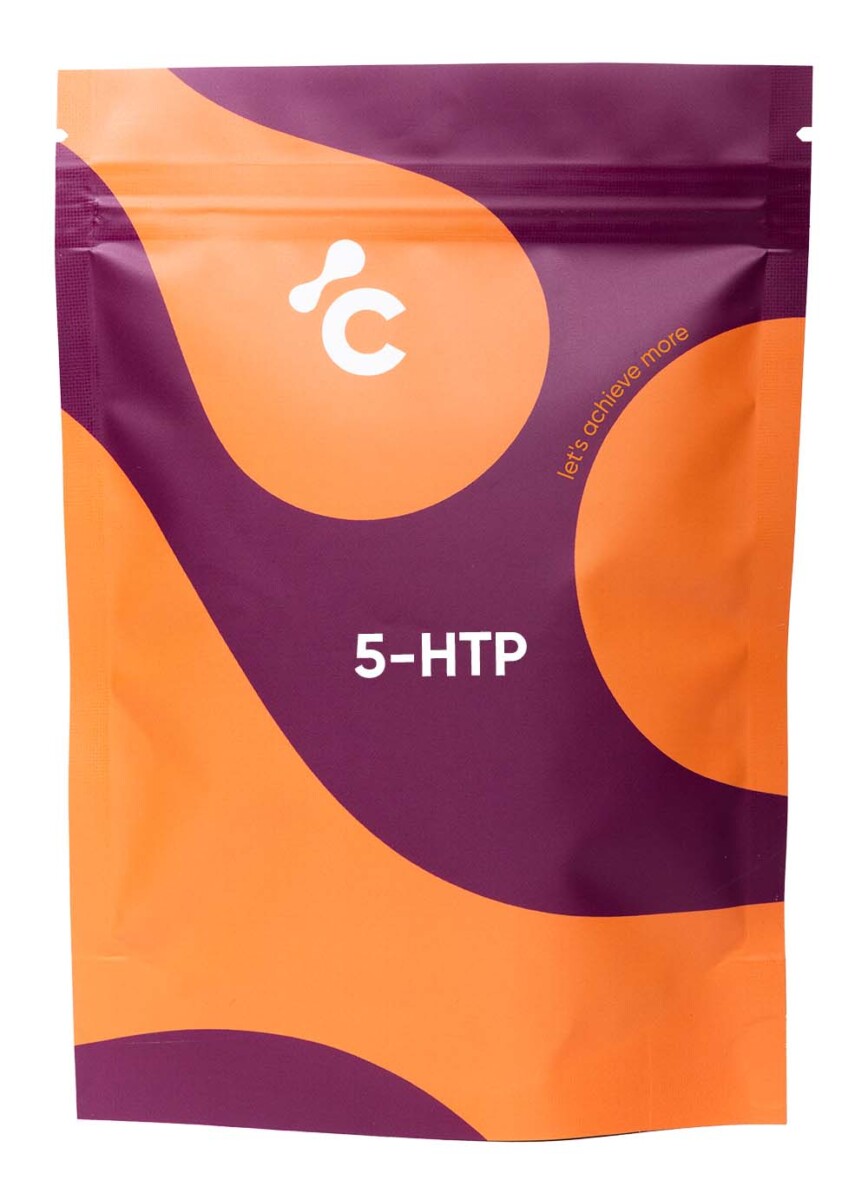Magnesium Threonate
Step into the world of ultimate quality with Magnesium Threonate, a premium product from Cerebra. We believe in nothing less than the very best, and our commitment to unparalleled excellence is proudly reflected in every aspect of this product. At Cerebra, our quest for perfection goes beyond just a name on a label.
- Ordered before 3:00 PM, shipped today!
- Your order fits through your mailbox.
- We are happy to provide you with advice!
Description
Step into the world of ultimate quality with Magnesium Threonate, a premium product from Cerebra. We believe in nothing less than the very best, and our commitment to unparalleled excellence is proudly reflected in every aspect of this product. At Cerebra, our quest for perfection goes beyond just a name on a label. Buy the best Magnesium Threonate capsules in Europe!
- Ordered before 3:00 PM, shipped today!
- Your order fits through your mailbox.
- We are happy to provide you with advice!
Buy Magnesium Threonate Capsules!
Discover the dynamics of Magnesium L-Threonate and give yourself a boost of energy and vitality! As a natural supplement, Magnesium L-Threonate provides the support you need to live life to the fullest with energy. Experience the benefits of Magnesium L-Threonate capsules for yourself and place your order today!
Order Magnesium L-threonate capsules from Cerebra
We have meticulously thought through and perfected the quality of Magnesium Threonate down to the smallest detail because we understand that your well-being is of the utmost importance. Would you like to enjoy the benefits of Magnesium L-Threonate? You can buy high-quality Magnesium L-Threonate 500mg capsules from us, the ideal daily supplement. Magnesium L-Threonate is a potent formula derived from an essential amino acid. This natural substance is naturally present in the body. Discover the natural power of Magnesium L-Threonate and experience the well-being benefits. At Cerebra, you can find other supplements for energy as well:
Important: Follow the recommended dosage and consult the product label for instructions. Remember that individual reactions may vary. Magnesium L-Threonate is not a replacement for a balanced diet but a complement to a healthy lifestyle.
Daily Use of Magnesium L-Threonate
To get the most out of your supplement, we recommend taking it twice a day, preferably after a meal. Taking the supplement with food allows the body to absorb it better and reduces the potential side effects of an empty stomach. Store your supplements in a cool and dry place to maintain their quality and effectiveness.
Additional information
| Weight | 0,05 kg |
|---|---|
| Dimensions | 15 × 10 × 0,5 cm |
| Monthly supply | 60 Capsules – 500mg |

